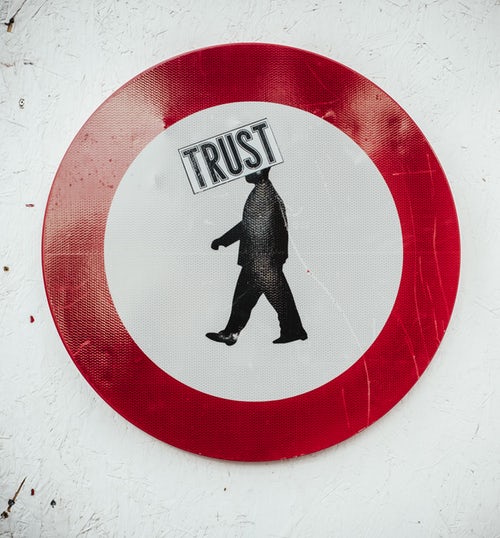Trust vs. competencies when hiring

It is 12:25. One of our clients calls me. He urgently needs a Sales Manager. URGENTLY! I do not understand this sense of urgency – I know him, I know his company, he does not rush into action. And emergencies, not once, make you react under the influence of strong emotions, rationality occupying the second spot.
We meet. I need to understand the company’s direction, to see if there have been any incidents, I need to understand the situation of the company which determines this emergency. We need to then create the profile of that sales manager who perfectly fits in the organisation. The cause of the emergency: the company’s exposure to big risks because of the sales manager’s actions: a lot of missing money on the market, extended payment deadlines the company cannot afford, the risk of non-payment coming from certain clients and so on. There is no point in continuing, the picture was dark. The position requires a replacement.
The first question which came to my mind: Were the actions malevolent?
The answer was: No, I do not think so. It was simply the wish of meeting the sales targets without taking into consideration that, indirectly, he was risking the company’s future… Oh, yes… the relations he had with clients also made him forget about the company’s objectives. A-ha, I understand. On a personality test he would score high on Tolerance and Flexibility. In behavioural terms – he leaves from the company with the company’s discourse and comes back with the client’s discourse, advocating for the client, inside the company, sometimes even in its detriment. Oh, yes… most of the times he does not even notice this. At a turnover of almost 20 million euros you would not want to play this game.
How did he get here? My question. „I knew him, I trusted him.” I then decided to write this article. It is one of the most common errors. Without taking the effects into account, we hire based on trust, and not competencies. As an employee, you have leverage when you benefit from the stakeholder’s or the general manager’s trust. You can make big strides because trust facilitates this. See Stephen M.R. Covey – “Speed of trust”, which pinpoints the impact of trust in an organization.
Dr. Duane C. Tway (1993) defines trust as “the state of readiness for unguarded interaction with someone or something”. In other words, the state in which you are ready to interact with someone or something without having the need to protect yourself.
But let us not forget: trust is defined by Tway as a construct consisting of 3 components:
- The ability to trust – all your experiences developed your ability and desire to risk by trusting others.
- The perception of competency – your perception on your own ability and the ability of the ones you work with to perform no matter the needs of the current situation
- The perception of intentions – defined by Tway as the perception in which actions, statements, direction, mission and decisions are motivated by the desire to win of both sides, in the benefit of those involved, not only of the individual person.
Sometimes we stop at the first component. The fact that we have a history full of life experiences with that person, many times unrelated to our profession or business field, makes us ignore the competencies and sometimes even the perception of intentions. Here I wanted to get.
It is just that these experiences lead us to defining trust, forgetting to also evaluate the competencies of the person. The two components intensify one another; create a favourable context for actions and projects that determine the development of a company. Of course we also ask ourselves the following question: OK and if we have people with the required competencies, can we develop trust? The answer is YES! HOW?
Developing trust in a person is a continuous process of developing a relationship, communication and action. The simplest example: if you do what you say you will do, with every action that confirms this, trust grows. The backside is also valid, let us not forget.
Trust is also a choice of ours.
Each one of us decides if he wants to create a relationship based on trust, or he wants to stay in a context in which we permanently apply checking filters in order to avoid any risk. Trust develops step by step over time, it is based on solid judgement and requires limits and conditions.
Turning to today’s situation, companies comply quickly. When they commit an error like that, most of the times, they learn their lesson and they quickly turn to actions.
The same thing does not happen in our administrative system. We have in Romania the third government in which trust based on relationships is the main component for having a position in the government. The type of clan culture, they all know each other, they are from the same county, the same town, the same block, maybe even the same entrance. They all know each other because they share common life experiences, but they do not have competencies. They might have common interests, and if these are unorthodox, they make them think they are part of a caste which has access to certain information, positions, power. They create the image of privileged and untouchable for themselves, but their actions are not for mutual benefits. They are firstly made in their own individual interest.
And we are from now on in the state in which we desperately need competencies! From there we must start any appointment within the Romanian government. We build the trust, we know how.
Forget my intervention in Romania’s situation, but the private sector is the main “beneficiary” of the actions of these “competent people”.
Kind regards,
Claudia

